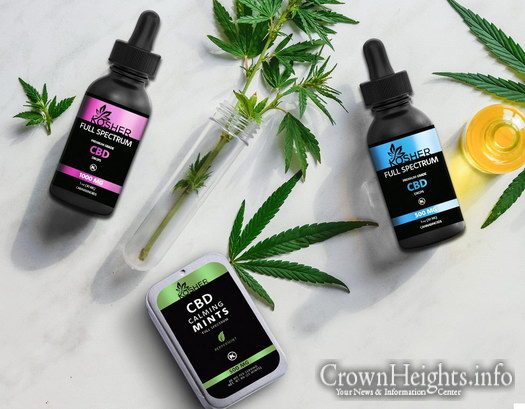
CBD? Hemp? The Ins and Outs of the Kosher CBD Market Part 2
Hi everyone, and welcome to Part 2 of our miniseries on cannabis, hemp, and infused edibles. The first part of this exposition discussed the differences between hemp and cannabis from the chemical, medicinal, and legal perspective. In this article, we will explain the process of how the “good stuff” contained within the plant gets from there to the delicious edible you pop into your mouth.
In the ever-booming hemp/cannabis industry, agronomists, chemists, doctors, distillers, extractors, and many other businesses under this umbrella, continually strive for the most cutting-edge technology to produce the finest, purest products. Regardless of whether the plant material (biomass) was grown indoors or outside, requisite Certificates of Analysis verify its quality in terms of the presence or absence of pesticides, heavy metals, and molds/fungi; COAs also provide required information on potency, terpene profiles, and presence/absence of residual solvents in the extracted material.
After harvest, the crops are cured before post processing. Biomass designated for extraction is then ground to powder and packed into the extraction machine. There are a total of seven different variables in any given extraction. These include:
- Quality of biomass
- Density of biomass
- Time that solvent is in contact with the biomass
- Temperature
- Pressure
- Polarity of the solvent
- Proper load-to-volume ratio
Manipulating any of the variables allows one to control the desired result. Except for one system in the industry, none of the other systems provide control of all seven variables. Extraction takes between a half hour to one hour. To recover 100% of the solvent usually takes 3-4 hours. After solvent-recovery, the resulting extract contains 99+% of the cannabinoids and terpenes that occur naturally in the plants. This is referred to as crude oil. Many companies take the crude oil and further refine it through distillation and even make isolate crystals. Each post process removes impurities until only these pure crystals are left. Postprocessing has advantages and disadvantages. The most significant disadvantage of using distillates and isolates in finished products is similar to overcooked food – all the “good stuff” gets boiled out. Contrarily, when one uses crude oil as a major constituent in a proprietary blend, the effects are more complete and cover a broader range of therapeutic benefits, thus providing a genuine “entourage effect” experience.
Once you have activated your crude oil, you will then have a fragrant, true full spectrum, versatile base for infusion into virtually any type of sweet, savory, or other edible substance.
This is where Mendy S, Shloimy R, and the team at Kosher CBD stand head and shoulders above the rest of the competition. With their many years of combined expertise, KCBD’s proprietary blends have delivered hit after hit in the CBD world. Whether you seek a late afternoon rocket-boost from their high-powered Extreme Gummies and Daytime Focus tinctures, or you want to get into that relaxed state that leads to deep sleep from KCBD’s nighttime blends, you can always trust Kosher CBD to bring you the finest full-spectrum, kosher edibles.












